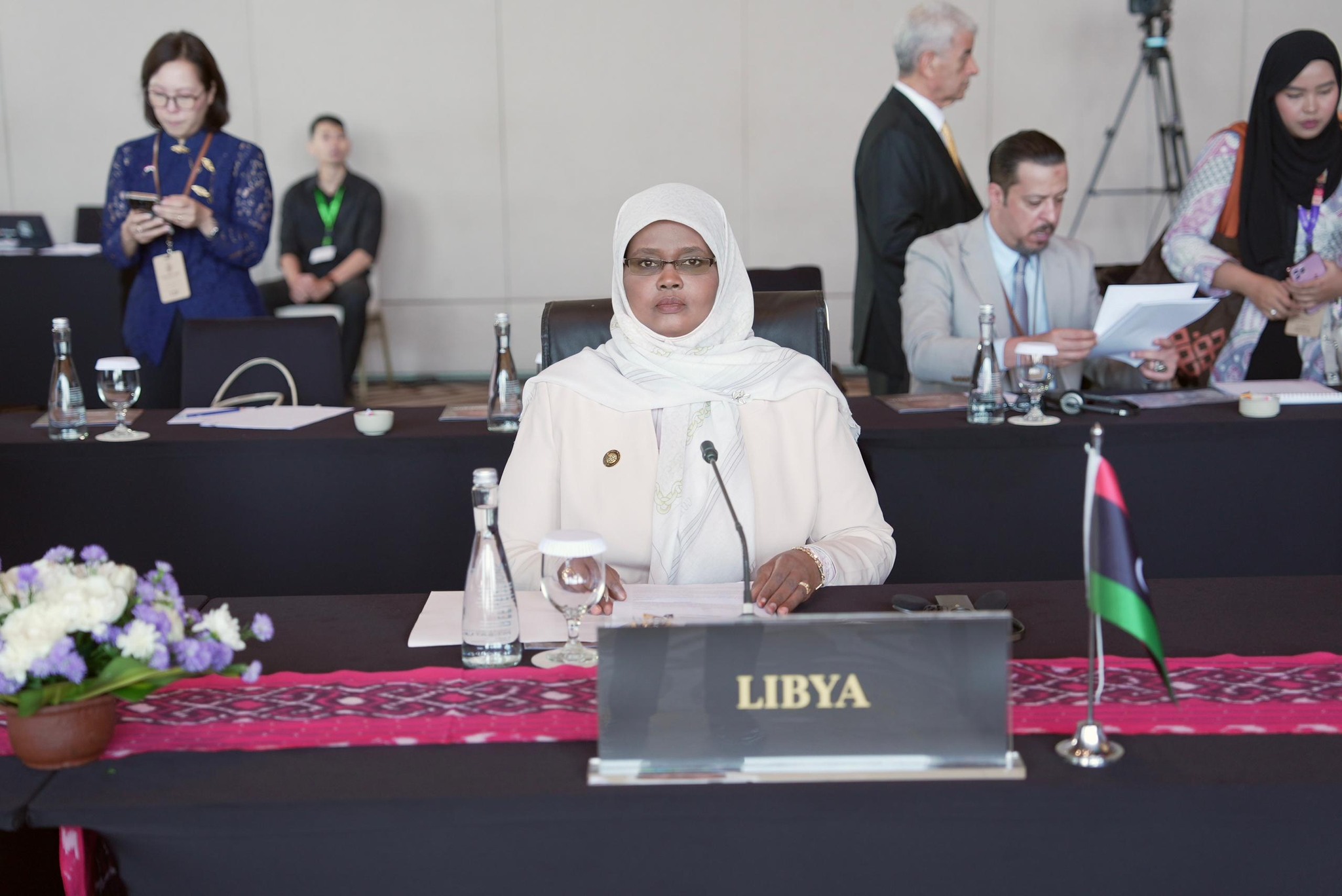The Minister of Culture participates in the summit on culture, heritage, arts, storytelling, diplomacy, and innovation in Indonesia.
Pulbished on:
Bali, September 5, 2025 (LANA) – The Minister of Culture and Knowledge Development, Mabrouka Tougi, participated in the Ministerial Conference of the Culture, Heritage, Arts, Storytelling, Diplomacy, and Innovation Summit (CHANDI 2025), held on Wednesday in Bali, Indonesia, as part of the first international summit organized by the Indonesian government under the theme "Culture for the Future."
In her address to the ministers of culture and representatives of participating countries, Tougi emphasized that Libya places culture at the heart of its strategic vision for comprehensive and sustainable development, within the framework of Libya's Vision 2050, which aims to build a knowledge-based society that cherishes its national identity and contributes to shaping contemporary human knowledge systems.
She stressed that the Ministry of Culture seeks to establish culture as a fundamental pillar for building the future, by developing cultural and creative industries and enhancing the role of culture in creating wealth and stimulating a new economy based on innovation and excellence.
Tougi explained that Libya is actively participating in international efforts to outline a vision for culture beyond 2030, including the protection of cultural heritage, peacebuilding, and addressing future challenges facing humanity.
She affirmed that recognizing culture as a strategic driver for sustainable development, social cohesion, and appreciating its resilience in an increasingly complex, unstable, and rapidly changing digital age, with widening inequality and shifting geopolitical dynamics, is one of the key options that the summit should adopt. She added that the political environment for culture is being reshaped by a complex interplay of pressures, with heritage and living traditions facing mounting environmental and structural threats, while conflicts and emergencies endanger cultural assets and social memory. Technological advancements broaden access to culture, but also raise ethical questions about rights and cultural diversity, while the illicit trafficking of cultural property undermines trust and justice.
The Minister noted that Libya supports ongoing initiatives and programs for intercultural and intercivilizational dialogue, believing that cultural exchange is a transformative force that can mitigate prejudice, reduce polarization, prevent conflicts, and deepen understanding among peoples.
...(LANA)...




